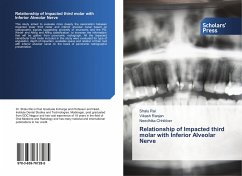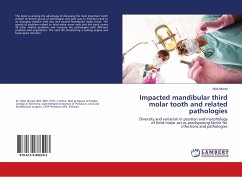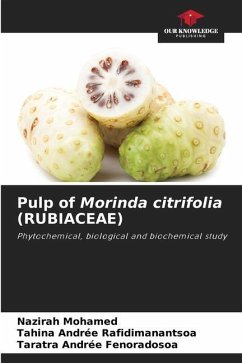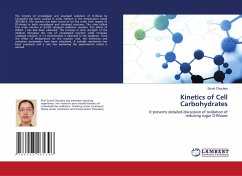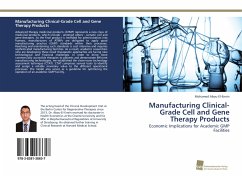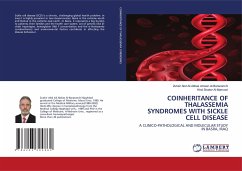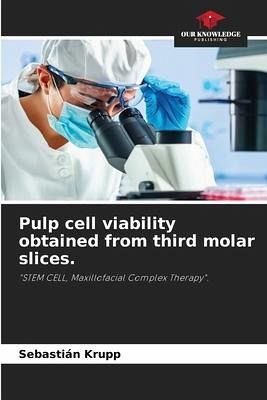
Pulp cell viability obtained from third molar slices.
"STEM CELL, Maxillofacial Complex Therapy".
Versandkostenfrei!
Versandfertig in 6-10 Tagen
40,99 €
inkl. MwSt.

PAYBACK Punkte
20 °P sammeln!
Several populations of mesenchymal stem cells derived from dental tissue have been identified in the oral cavity, such as those derived from temporary teeth, dental follicles or alveolar bone, among others. These stem cells can be enzymatically manipulated, subjected to tissue growth factors and are capable of differentiating into adipocytes and osteosites. The main source of adult stem cells from permanent teeth are the third molars, which are the most unstable in the face of failure or obstruction of their development and are characterized by their capacity to regenerate the pulpodentinal co...
Several populations of mesenchymal stem cells derived from dental tissue have been identified in the oral cavity, such as those derived from temporary teeth, dental follicles or alveolar bone, among others. These stem cells can be enzymatically manipulated, subjected to tissue growth factors and are capable of differentiating into adipocytes and osteosites. The main source of adult stem cells from permanent teeth are the third molars, which are the most unstable in the face of failure or obstruction of their development and are characterized by their capacity to regenerate the pulpodentinal complex.In this sense, obtaining dental pulps from third molars through different types of cuts to determine the most effective method to preserve cell viability and begin to develop the culture of mesenchymal stem cells, with the prospect of being able to implement it in the future in buccomaxillofacial reconstruction, would have a positive impact on the care of patients in the hospital setting, with repercussions on the health of the population.



